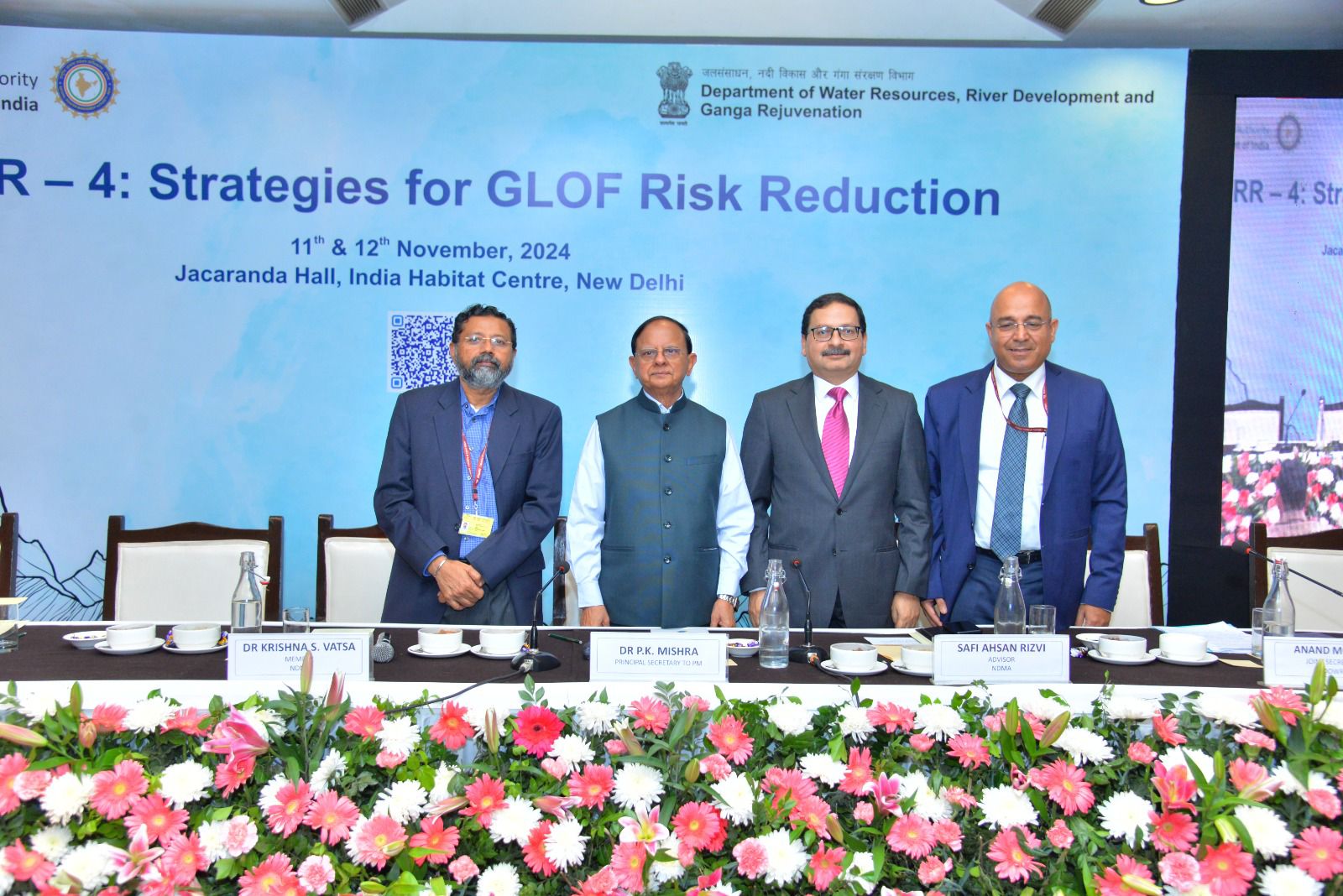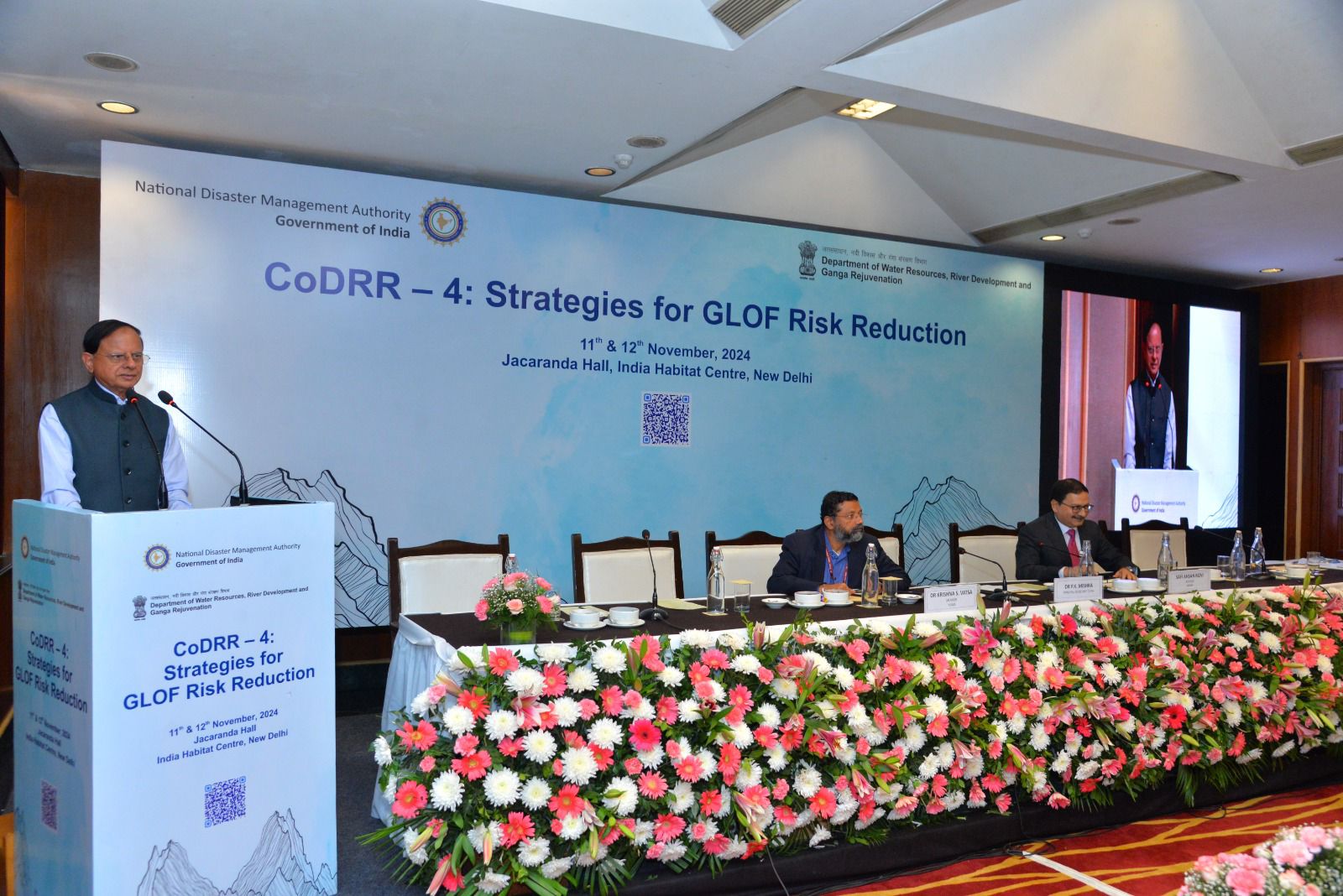
New Delhi 12 November 2024; The Principal Secretary to Prime Minister, Dr. PK Mishra has highlighted mitigating risks associated with glacial lakes to ensure a safer future for our communities. He was addressing the 4th Workshop of the Committee on Disaster Risk Reduction (CoDRR) on Strategies for GLOF (Glacial Lake Outburst Flood) Risk Reduction. He complimented the National Disaster Management Authority (NDMA) and the Department of Water Resources for organizing the workshop. The focus was on the international perspectives and experiences, India’s experiences, gaps and challenges in mitigating the risks and related aspects. Dr Mishra said that the discussions on Sikkim glacial lake outburst flood disaster has brought to focus the enormity of the challenge. The South Lhonak GLOF was a wake-up call for all of us. Hence the need for effective strategies to address risks associated with glacial lakes.
Quoting Prime Minister Shri Narendra Modi’s words, “Disaster risk reduction is not just about responding to disasters but also about building resilience.” Dr Mishra reiterated PM’s emphasis that “the best way to deal with disasters is to prevent them,”. Furthermore, he stated, “We must work together across borders and disciplines to create a safer world,” highlighting the importance of collaboration in addressing global challenges like GLOF risks.

Dr Mishra emphasized that India’s commitment extends beyond national borders; hence the vital aspect of engaging with GLOF experts from countries such as Bhutan, Nepal, Peru, Switzerland and Tajikistan. He iterated that such collaboration is vital to enhancing our understanding of response strategies.
Dr Mishra underlined the key contributions from Experts who have enriched our understanding of the critical issues. He said that earlier attempts to mitigate risks from the South Lhonak lake were not successful and plans were primarily restricted to scientific hazard assessments and geo-spatial monitoring of lake size increases, while there was diffused responsibility among states and central agencies, causing confusion regarding roles.
Dr Mishra lauded the move to set up the Committee on Disaster Risk Reduction (CoDRR).It has enabled a series of meetings, regular feedback; communication between central scientific agencies and states; and helped delegate primary responsibility to states, while ensuring adequate support from central agencies.
Dr Mishra said that a dynamic list of 200 high-risk glacial lakes hss been compiled from a total of 7,500 surveyed.
He mentioned about Sikkim teams, who visited 18 out of 40 designated lakes with representation from various agencies such as CWC, GSI, CDAC, Army, ITBP, and local academic institutions. He said that the plans for mitigation measures have been initiated at five lakes in Sikkim. This will be backed by the Government of India’s approval for the National GLOF Risk Mitigation Programme with an allocation of ₹150 crores for four states.
Dr Mishra suggested that monitoring and mitigation efforts concerning glaciers and glacial lakes must be undertaken with central scientific institutions. Strengthening State Disaster Management Authorities (SDMAs) will be vital in enhancing capacity to respond effectively. He underlined the need to have a dedicated financial window for GLOF risk reduction across these affected states and UTs. for water security.
Members of National Disaster Management Authority (NDMA) among other eminent panelists and speakers attended the program.
















No Comments: